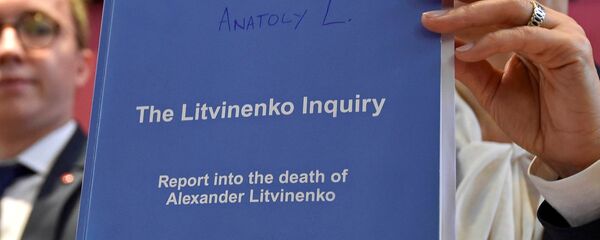Litvishko reminded that in 2006, Russia and London conducted a joint probe into the death of Litvinenko, which was a good example of international legal cooperation.
"Regrettably, the public inquiry which replaced that inquest was devoid of an adversarial nature and closed to the public, ignored significant evidence and breached some rules of international cooperation, and after proceeding in closed sessions, came to the contradictory and legally untenable conclusions. This is a stark illustration of how serious damage can be inflicted on the anti-crime cooperation efforts of states for the sake of current nonlegal considerations," Litvishko told RIA Novosti.
The report concluded that Litvinenko’s former colleagues Dmitry Kovtun and Andrey Lugovoy deliberately poisoned him with polonium-210. The inquiry, however, failed to prove that the polonium-210 used to poison the former intelligence officer came from Russia.
Litvinenko moved from Russia to the United Kingdom in 2000. He died in 2006, three weeks after drinking tea with Kovtun and Lugovoy in London.
The Russian Foreign Ministry criticized the UK inquiry as politicized and lacking transparency, and said it would have an adverse effect on Moscow-London relations.



